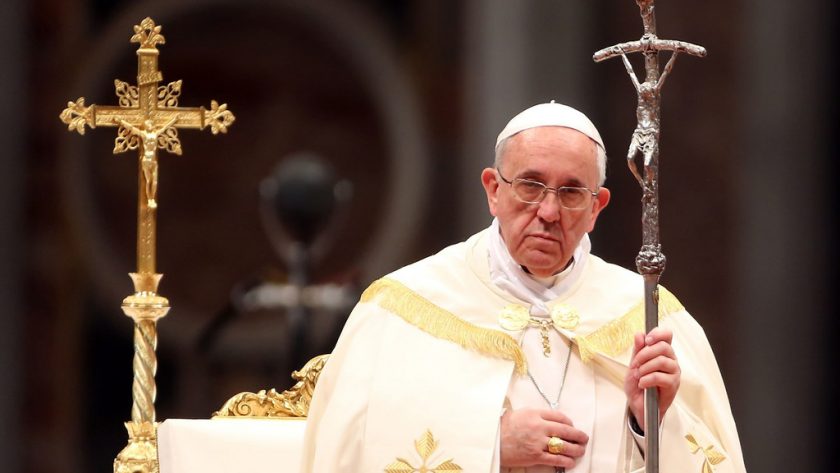
In only 11 pages, Archbishop Carlo Vigano shocked over a billion Catholics. In the midst of the pedophilic sexual abuse allegations brought against Cardinal Theodore McCarrick—the first cardinal in the history of the Catholic Church to resign because of a sexual abuse scandal—and the shocking report released by Pennsylvania Attorney General Josh Shapiro, which accuses over 300 priests of abuse and silencing of over 1,000 minors, Vigano found a new story to horrify the Catholic faithful. On Aug. 25, Vigano released a public letter in which he alleges clerical abuses stretching all the way to the Pope.
The first six pages of the former Nuncio’s (the official title for Vatican ambassador) letter accuses major bishops, like Cardinal Donald Wuerl, of complicity in the abuse rampant in the Church, but it is not until six pages in that he drops his bombshell accusation.
“My conscience requires me also to reveal facts that I have experienced personally, concerning Pope Francis, that have a dramatic significance, which as Bishop …do not allow me to remain silent, and that I state here, ready to reaffirm them under oath by calling on God as my witness,” Vigano wrote. According to Vigano, Pope Francis had not only known of and not acted on the allegations against McCarrick in 2013, but had removed the sanctions levied upon him by Pope Benedict and made McCarrick a close advisor.
Vigano’s letter sent shockwaves throughout the Church, exciting the bishops and lay people in the kind of vitriolic confrontation in a way very uncharacteristic of Catholic discourse. Priests on both sides of the issue have issued public statements on the letter, like Bishop Thomas Paprocki, who Vigano called a “very credible person … who would be in a position to know.” However, equally strong statements have been issued by men like Cardinal Joseph Tobin—mentioned as a beneficiary of the corrupt in Vigano’s letter—who dismissed the letter as “factual errors, innuendo and fearful ideology.”
“One reading of the overall situation, in terms of attacks upon the Pope, his critics in the Vatican may be hijacking the problems with sexual behavior that have been getting so much publicity since the Pennsylvania report, in order to get at him for other reasons,” Professor Gordon “Mike” Michalson said. He added that Vigano’s letter was “deeply homophobic and seemed driven by ideology… and it seemed driven by deeper issues.”
Vigano’s letter decrys the “homosexual networks” that he claims has corrupted the Church’s clergy and demands a renewed denouncement of homosexual behavior. But Vigano’s allies, like Monsignor Charles Pope at the National Catholic Register, see this as necessary rhetoric. They point to the vast majority of abuse victims being male and as the Pope put it, “gay” subculture that is demonstrably existent among a significant number of clergy in the Church.
However, even with the bedlam encircling him, Pope Francis has refused to make any statements about the allegations levied against him.
“With people who don’t have good will, who seek only scandal, who want only division, who seek only destruction, including within the family: silence, prayer,” Pope Francis said in a Monday sermon on Sept. 3. This lack of statement has been just as divisive as the allegations themselves. Supporters of the Pope claim his actions fit with the teachings of Christ and his detractors take offense to the refusal of a defense, exemplified by Matt Walsh, a contributor at the Daily Wire, who responded to the Pope’s silence with a question: “Can it be reasonably imagined that an innocent man would behave this way?”
“I think the scandals about priestly misbehavior and cover-ups by the higher-ups is secondary to the deeper fight going on in the Vatican between what are portrayed as conservative and more liberal forces within the Church,” Michalson said, citing Pope Francis’s stance on homsexuality, in particular, as being a strong point of contention between him and the conservatives in the Church.
Supporters of Vigano would balk at the idea that this scandal was parochial partisanism. But Michalson summed up the feelings of many on both sides with his next statement.
“The Roman Catholic Church lumbers along as this huge, historically proud institution. … The Church right now is at a crucial moment with respect to issues of change,” Michalson said.

